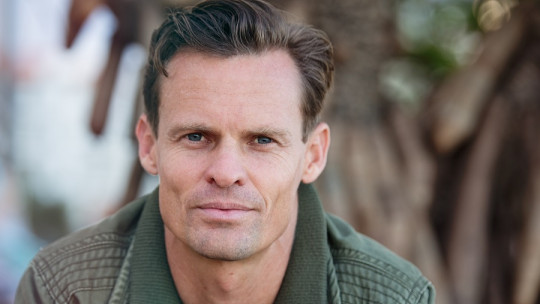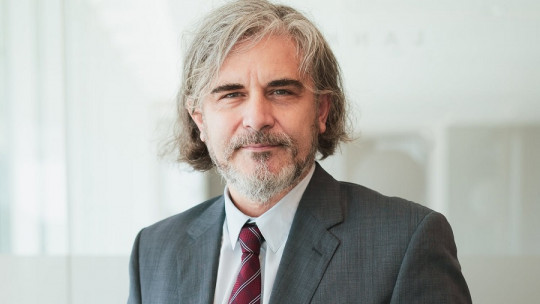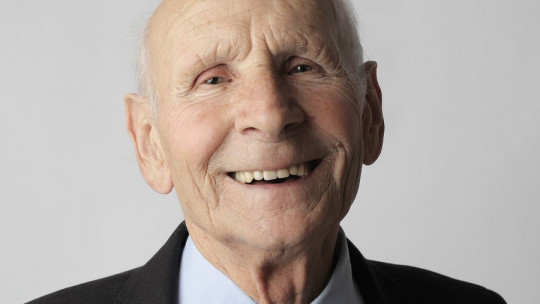
Early adulthood is the period that comes after adolescence and before middle adulthood, comprising between 18 and 40 years more or less. It is a period in which we enjoy good health, full independence and greater autonomy to explore the world around us.
This stage is characterized by a series of physical, psychological, cognitive and behavioral aspects that we will explore below, in addition to understanding the importance of taking care of our physical and mental health during this period to avoid developing health problems later.
What is young adulthood exactly?
young adults They are people who have already gone through adolescence, but who have not yet entered full maturity or intermediate adulthood Early adulthood is the age period between adolescence and middle adulthood whose ages have been agreed to range from 18 to 40, although it should be said that there is a diversity of opinions regarding its limits.
Whatever its limits, what we can say is that early adulthood is one of the longest periods of life and, also, one that includes the most changes.
It is worth mentioning that it was not until relatively recently that it was known what happens during this period, since developmental psychology has had a certain bias focusing more on childhood and adolescence than on what happens to adulthood. Fortunately, in recent decades there has been growing interest in knowing what traits define adulthood as such, and early adulthood in particular.
In this stage, young adults are full of energy, tend to develop ambition and have great creative potential, which are to be developed with entry to higher education or other forms of specialization after secondary education. Although with some uncertainty and perhaps even fear of the unknown, this stage usually begins with excitement, a desire to enjoy their independence and discover what they really are like, leaving behind the stage of great confusion that is adolescence.

Physical and psychological characteristics of this phase of life
Upon entering young adulthood, people leave the primary developmental process behind. That is, it is understood that their physical and cognitive abilities are fully developed or, at least, almost ready.
Physical characteristics
Young adults are at the highest point of physical development and, therefore, enjoy the moment in which they have their best physical capabilities. Muscle strength and endurance are the highest they have ever been, and they can improve it if they know how to take care of themselves. Other factors, such as sensory abilities, reaction time or cardiovascular health, are at their maximum, as long as they do not engage in behaviors that are harmful to the body such as smoking, drinking or taking drugs.
It is also during this period of our lives when we have the highest energy levels, which is why the majority of professional athletes fall within this range and rarely exceed 35 years of age without being retired. Thanks to having a higher level of energy, caused in large part by having higher levels of testosterone, young adults are prone to explore.
Towards the end of this stage, especially between the ages of 35 and 40, the body begins to age slowly At first the changes will be subtle, not very noticeable, but the closer we get to middle adulthood, the more they will be noticeable. For example, energy is lost, vision worsens, hair begins to fall out, and the immune system has a harder time protecting us from certain diseases. Towards the end of this stage you also begin to lose some bone density and muscle mass, and it becomes easier to accumulate body fat.
Cognitive and psychological characteristics
In early adulthood, cognitive abilities begin to stabilize. There is some debate about when full cognitive development is reached, with experts considering it to be around the age of 35.
During this time is when relative thinking is consolidated, a characteristic that is generally absent in childhood and begins to emerge more or less timidly during adolescence This means that young adults realize that things are not always dichotomous, black or white, but that there are certain nuances that relativize what is correct and what is not.
Thus, we can affirm that young adults begin to look at each problem from various perspectives, and understanding that there is not always a single and clear answer. Critical reflection becomes especially important during this time.
early adulthood too coincides with the development of pragmatism During childhood and adolescence, we hardly face serious problems in the real world. However, when we reach early adulthood, the need to achieve greater independence means that we need to look for ways to meet our personal, work and academic goals and objectives, even when we do not know everything or do not have a good action plan.
During early adulthood, the foundations of the beliefs that guide a person’s behavior, their values and their way of interpreting things are laid. Also an almost definitive shape is being given to political ideology and the vision of what is considered an ideal world for the individual This, naturally, is influenced by the type of education received from home and the level of education, in addition to the life experiences lived, but what all individuals do share is that early adulthood takes a lot of shape in what their political vision is. and moral.
Behavioral and relational characteristics
As we have mentioned, the body is at its peak of development in early adulthood. Anthropology and evolutionary biology have hypothesized that humans are not biologically prepared to survive much beyond this stage. Although this statement is somewhat debatable, it is true that All our systems are at full capacity between 18 and 40 years old and it is believed that it is to ensure that we make the most of our existence.
Both men and women have their highest levels of testosterone during this stage. This is related to greater physical strength, more energy, and more propensity to engage in risky activities, motivated in part by the desire to feel adrenaline flowing through your veins. Besides, fertility is also higher at this time which is evidenced by the fact that people under 40 years of age have a greater sexual desire.
One of the most notable behavioral characteristics of early adulthood is independence, or at least a first approach towards it. Although it is true that some young people do not move out of their parents’ house, either because they cannot or because they do not want to, their independence is visible in things such as, for example, having their own economy by working, helping the home by buying food or paying the bills, and also in the form of academic independence, studying higher education preferably.
Sexuality
Although we have already suggested it in the previous section, it is worth going into detail about how sexuality occurs in early adulthood because, after all, it is one of the most important areas of most people’s lives, something which becomes especially evident during early adulthood. Generally, sexual desire during this stage is greater due to the increase in sex hormones.
The way in which sexuality is expressed at this time varies greatly from culture to culture In more conservative societies, people at the beginning of this stage tend to look for stable partners and start a family, while those who live in more liberal environments tend to postpone these events until later, after age 35. It is also possible not to never look for a stable partner, simply look for sexual partners or be merely interested in sexual pleasure.
It is common for people to want to have as many partners as possible, both to try your luck and find the right one and also for the mere hedonistic pleasure of satisfying the sexual need. From the age of 30 and, especially, from the age of 35, this tendency tends to decrease and there is a greater interest in looking for a permanent partner and establishing a stable life with them.
early adulthood is especially significant for non-heteronormative people, especially if they come from very conservative backgrounds where their being has been repressed. Young homosexual and bisexual adults begin to explore their sexuality right at this stage, coinciding with greater independence and autonomy, and it is usually early adulthood when one knows what their sexual orientation is.
Physical and mental health
Physical and mental health in early adulthood is stronger compared to other stages, but it can also significantly affect what it will be like at later ages. Early adulthood is the period in which we have and will be able to possess the greatest physical development If we do not take proper care of our body, engaging in harmful behaviors such as drinking alcohol frequently, smoking or taking drugs, in addition to not playing sports or watching our diet, this will take its toll on us in middle adulthood and, above all, in late adulthood. .
Regarding mental health, it should be said that during this period it is especially sensitive. If the person does not have the psychological resources to face adversities such as relational conflicts, emotional tensions or work and academic problems, sooner or later psychological problems and even mental disorders may develop.
Although it is in childhood and adolescence when the seeds for presenting mental disorders are sown, Many times it is in adulthood when they can flare up intensely in the form of anxiety and stress problems, phobias, social isolation, depression and other disorders
These problems can be especially serious in early adulthood, but they will undoubtedly worsen later as you age. This is why it is so important to take care of ourselves when we still have time, doing physical activity frequently and going to a psychologist to professionally treat any emotional problem that distresses us.
You should also go to the doctor for checkups with some frequency, in order to identify any disease that could worsen such as diabetes or cardiovascular problems. Prevention is always the best medicine.








